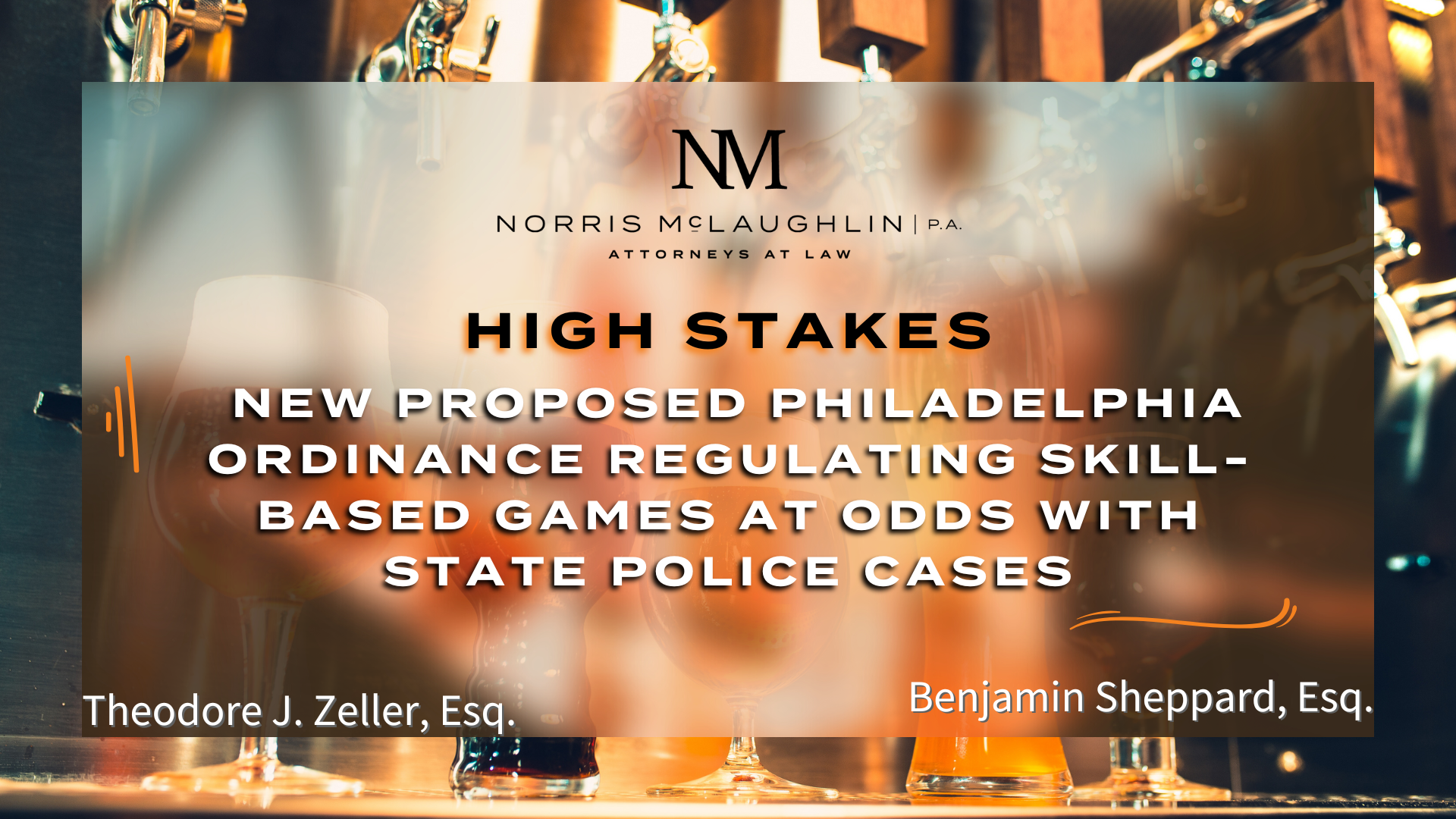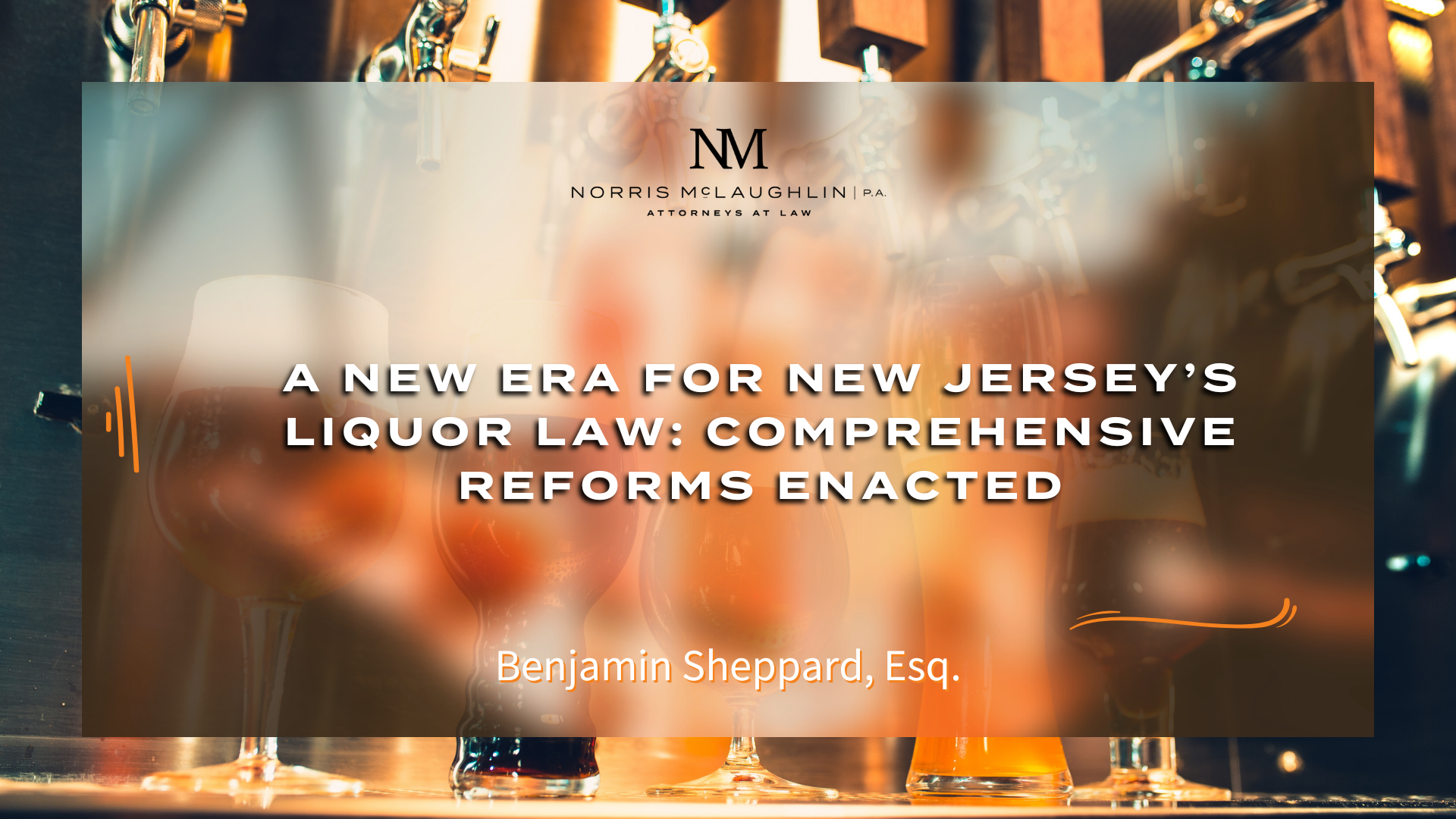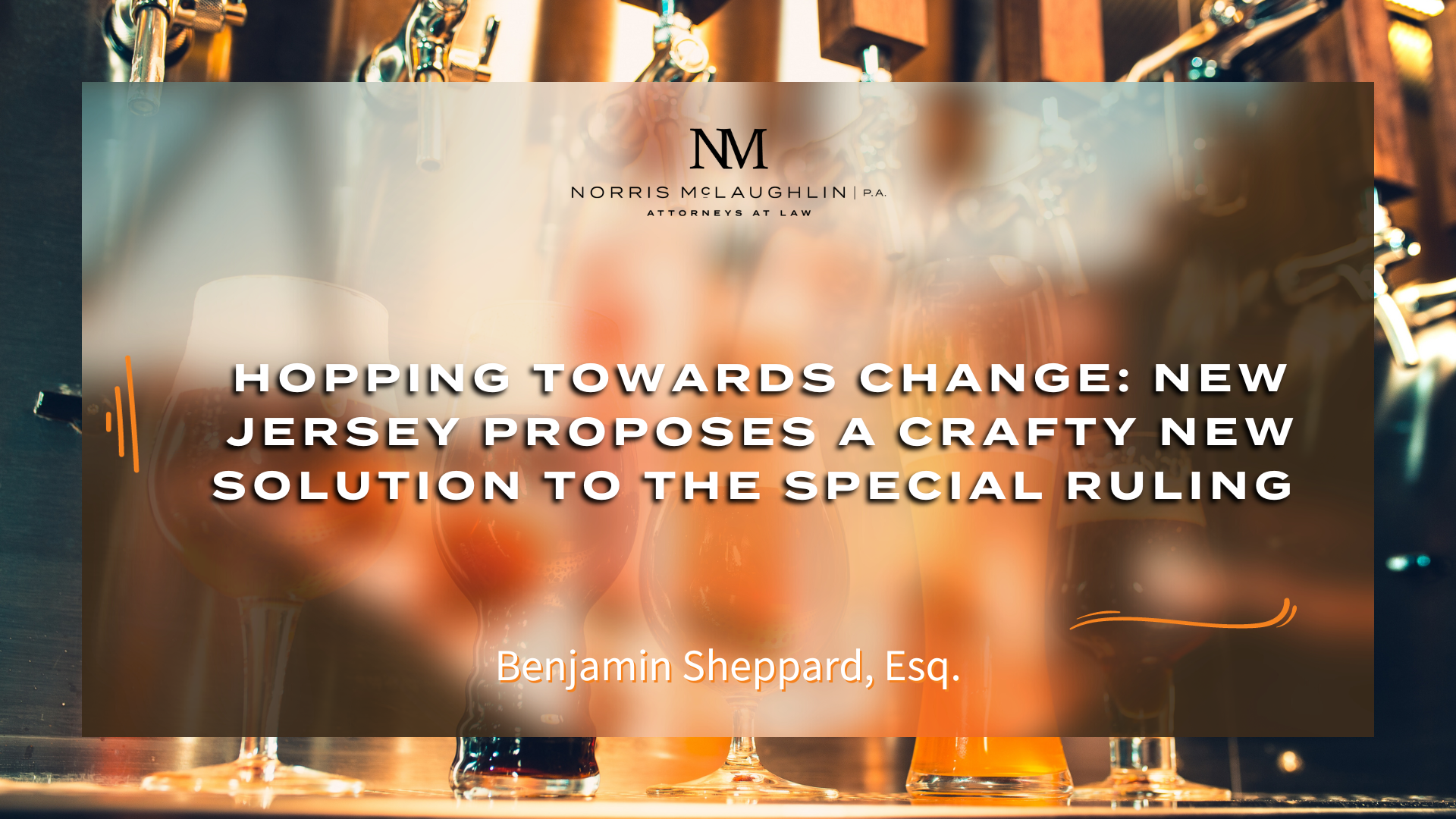Malt Beverage Slushies: New Sales Privilege for Distributors or a Loose Definition of Growler?
Frankly, the answer is both.
Recently, a friend visited my hometown’s local beer distributor and was shocked to see machines churning brightly-colored Smirnoff slushies. The distributor’s employees were serving the slushies to customers in Styrofoam cups with lids and tape over the straw hole. He did not understand how this could be legal. The distributor was serving alcohol as if it was a bar or restaurant. With new legislation in our rearview mirror, Pennsylvania has become an ever-changing landscape of liquor law, as retailers have begun to expose numerous loopholes in the new laws.
Act 166 of 2016 amended the Liquor Code to allow distributors and importing distributors “to sell malt or brewed beverages in any package configuration to a non-licensee for off-premises consumption.” This includes selling the malt or brewed beverages in the form of a growler. Most people would think of the growler we have all come to know and love, which you can use to fill with your favorite brewery’s beer. That is not the case anymore, as the PLCB has begun to broadly construe the definition of “growler”, which is “a refillable container for malt or brewed beverages that can be resealed.” Is your new Yeti mug a growler in Pennsylvania? As long as the lid can be closed, I would say the magnetic close tops qualify but the standard top with the small openings do not. These nuances will be the difference between compliance and exposure to a citation.
While an Advisory Opinion issued by the Pennsylvania Liquor Control Board (“PLCB”) in November, 2017 states that a plastic cup with a taped plastic bag as the lid does not meet the definition of a “growler”, there is another opinion issued by the PLCB in August, 2018 stating that a refillable cup with a lid would meet the definition of a “growler”. This is a big win for all licensees that can sell growlers in Pennsylvania, as they can now sell malt beverages to go in cups with lids. With these new laws, we are finally starting to erode the vestiges of Prohibition.
While the PLCB has clearly spoken that a refillable container (which can be as simple as a cup with a top) is legal, there are additional compliance issues to be addressed relative to “slushies”. There are strict requirements pertaining to how often and in what manner slushie machines must be cleaned. Additionally, the slushies must be prepared in a manner that would not be considered fortified, adulterated, or contaminated in the eyes of the PLCB. For example, even adding ice or water to the slushie for the purpose of helping it freeze is technically “adulteration” under the current law and is not permitted. Simply, changing the temperature of the malt beverage to form a slushie substance, however, is permitted.
As with everything else, there are more regulations outside of the Liquor Code to worry about before embarking on this new-found sales privilege. Their customers must comply with local open container laws. For example, the Pennsylvania Motor Vehicle Code has prohibitions on driving a car with an open container filled with an alcoholic beverage, which would be an issue for the consumer, not the distributor. It is possible that police officers would consider a malt or brewed beverage that is not in a sealed beer bottle or can, or an actual growler, to be an open container and in violation of the Motor Vehicle Code. We believe it may be difficult for a regular State Police Officer to issue such a charge when its Bureau of Liquor Control Enforcement is bound to allow Distributors to sell them in such a manner. Local authority may have a different opinion but State law could be pre-emptive. Interesting issues, indeed, but clearly the Distributors are completely legal in making a sale of beer or slushies into refillable containers.
Despite the somewhat complex regulations surrounding malt beverage slushies, many distributors are taking to this new trend as a way of drawing in additional customers and promoting sales. They are doing so, at least in part, to stay competitive in a market where grocery and convenience stores are now permitted to sell beer. Certainly, a restaurant license would have the same privileges (except R-licenses do not even have to serve beer in a refillable container with a top) and narrowing the competitive advantages one class of license has over another is a good thing for consumers.
For information regarding national and state liquor law matters or general manufacturing and distribution advice, please contact our Liquor Law, Licensing, Manufacturing, and Distribution Practice Group: Liquor Law Department Chair Theodore J. Zeller III, Esquire (tzeller@norris-law.com); David C. Berger, Esquire (dberger@norris-law.com) for Pennsylvania and New Jersey retail and manufacturing licensing; or contact our offices at 610-391-1800.




